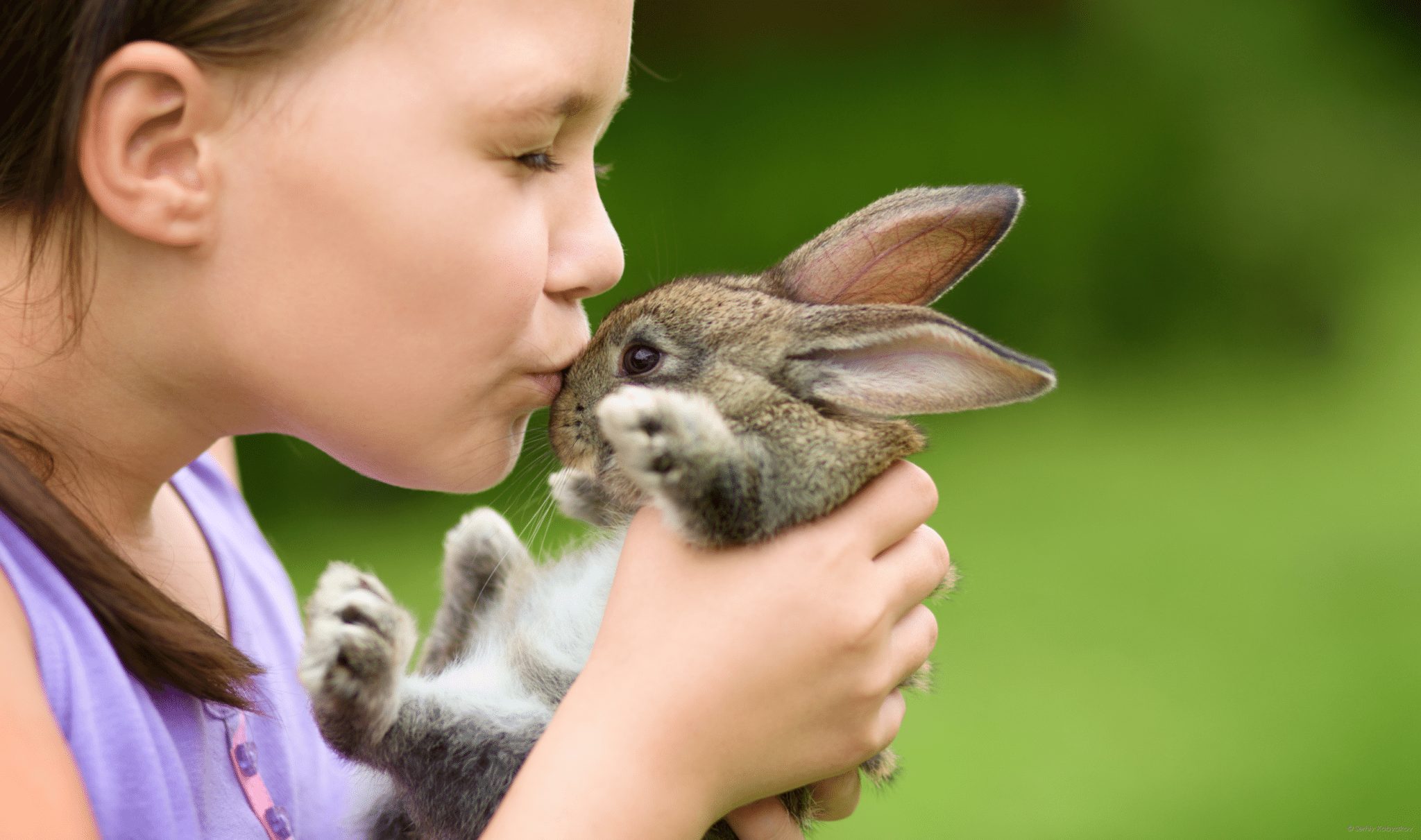
If you are thinking of buying a rabbit as a family pet, you should be aware that very small or rough children are actually not good companions for rabbits. While we think of bunnies as cute, fluffy pets, and they are, they’re not particularly good with kids, and kids are not particularly good with rabbits. They’re just not a good match, though there are good pets for kids and rabbits are good pets for older children and adults. It’s a matter of what makes a good partnership.
One of the myths about rabbits is that they’re cuddly. In fact, most rabbits, unlike some animals, simply don’t like to be held. They may kick and claw, and because they have sharp nails, they can inflict nasty scratches. And, in struggling to get loose, the rabbit may in fact injure herself. Physically, rabbits are very fragile, and when held, they can break a bone quite easily trying to get away.
Another problem with children and pet bunnies is that rabbits are very timid creatures, and children can scare them. Naturally, children run, play and are loud; rabbits are not good with this kind of activity, and can be frightened. Rabbits can even die of heart failure if startled too strongly. That said, if a child is sitting still and playing quietly where the rabbit can approach, many bunnies will go see what’s up with that person, because rabbits do like people in general.
There’s nothing inherently wrong with either keeping rabbits or pets or having pets for your children, but pet rabbits for children are not usually a good combination. This goes even more for those instances where the purpose of getting a pet rabbit is to “teach the child responsibility.” Again, teaching responsibility is great, but parents have to be willing to take care of the rabbit if the children won’t, because this is a living being whose life you’re responsible for.
Helping a child care for a pet is an important way to help the child learn about taking care of animals and being responsible. Rabbits are easily litter trained, and helping train a rabbit to use a litter box is a great job for an older child, as is cleaning the litter box on a regular basis. Other chores with rabbits include feeding and providing fresh water daily, grooming the rabbits’ fur and clipping nails, and giving each rabbit plenty of attention, exercise and playtime. Older children are well able to do these tasks, and if a grownup is acting as supervisor to make sure the rabbits are cared for, these can be good experiences for tweens and teens.
The bottom line is that rabbits should be a family pet, in a family with older children who understand that rabbits are not toys, and who are very careful and gentle with the bunnies. Younger children are not always capable of the care that is required, and the rabbits should always be a joint responsibility and never left solely to a child who might forget or neglect the rabbits unintentionally. If your whole family gets involved, rabbits can be a great source of joy.

